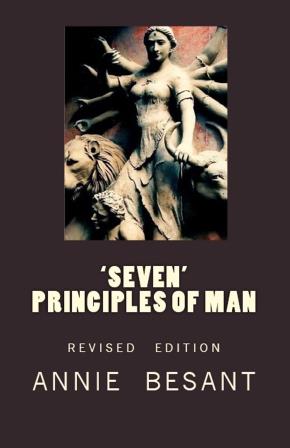
Seven Principles of Man
Man, according to the Theosophical teaching, is a sevenfold being, or, in the usual phrase, has a septenary constitution. Putting it in yet another way, man's nature has seven aspects, may be studied from seven different points of view, is composed of Seven Principles. Whatever words may be used, the fact remains the same — that he is essentially sevenfold, an evolving being, part of whose nature has already been manifested, part remaining latent at present, so far as the vast majority of humankind are concerned.




























